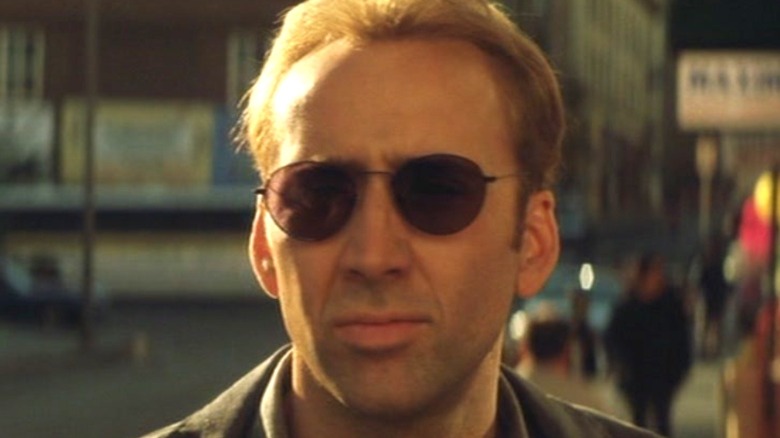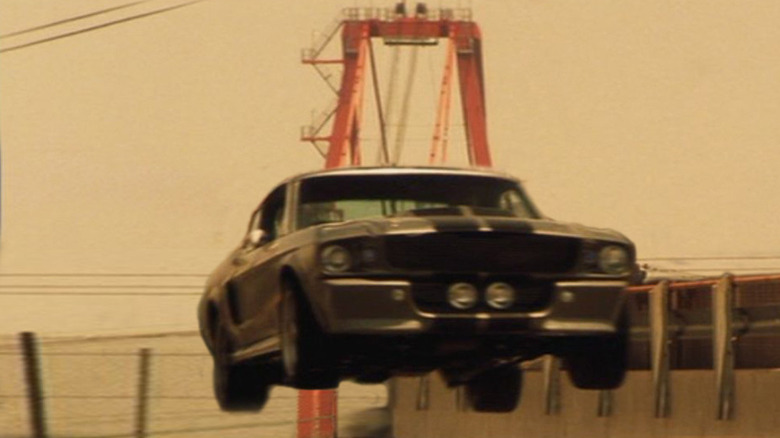The Ending Of Gone In 60 Seconds Explained
The 2000 car heist blockbuster "Gone in 60 Seconds" is a rip-snorting action flick of the same stripe as other Jerry Bruckheimer-Nicolas Cage collaborations like "The Rock" and "Con Air": loud, unpredictable, and armed with plenty of car chases, wisecracks, and explosions. Cage stars as "Memphis" Raines, a reformed criminal trying to outrun his past as an infamous car thief. His life change gets complicated, however when younger brother, Kip (Giovanni Ribisi), messes up a big score and is kidnapped by ruthless gangster Raymond Calitri (Christopher Eccleston). The British mobster presents Memphis with a seemingly impossible task: steal 50 cars in three days, or your brother is killed. Or at least it would be impossible, if Raines wasn't an expert thief.
Memphis assembles the perfect crew to grab the cars and save Kip, including his mentor Otto (Robert Duvall) and mechanic/old flame Sway (Angelina Jolie). The heist is on, but with the cops after them and his brother's life at stake, an already difficult task only gets harder and harder. This is how Memphis pulls off it all off by the end of "Gone in 60 Seconds."
Gone in 60 seconds is full of cops, double crosses, and car chases
Though the job at first goes well, Detectives Castlebeck (Delroy Lindo) and Drycoff (Timothy Olyphant) are always a step behind Raines and his crew throughout the heist, and the insightful Castlebeck realizes which target Memphis will hit last: "Eleanor," the classic 1967 Ford Shelby Mustang he's tried to steal for years. The detectives get to Memphis just as he finally grabs Eleanor, but he escapes, leading them on a wild, awesomely implausible chase through Long Beach. He arrives at Calitri's junkyard, the cars (mostly) intact, but the kingpin refuses to accept the slightly beaten Shelby Mustang and tries to double-cross Raines. A climactic fight ensues in Calitri's warehouse as the detectives pursue them.
Calitri gets ready to shoot Castlebeck but Raines saves his life, kicking Calitri off a railing and to his death. Ultimately Raines stays true to himself: he may be a good criminal, but first and foremost he's a good man trying to save his little brother, and Castlebeck quickly recognizes that. Quietly musing that "A brother's love is a brother's love," he lets him go and Raines, in turn, shows he's on the straight and narrow by giving him the location of the stolen cars. In the end, Detective Castlebeck looks the other way and lets Memphis off the hook, both for saving his life and to continue his positive trajectory to leave the life of crime behind him.

